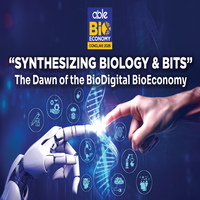News

GARDP supports Bugworks in assessing safety of new antibiotic compound
- by ABLE - 10 Jun, 2022
The Global Antibiotic Research and Development Partnership (GARDP) and Bugworks, a key player in the global antimicrobial resistance (AMR) innovation ecosystem, are collaborating on a study to assess the safety and tolerability of a new class of broad-spectrum antibiotic compounds aimed at treating serious infections caused by multidrug-resistant bacteria.
Bugworks, which has its research and development base in Bangalore, India, is currently conducting a First-in-Human (Phase 1) study in Adelaide, Australia, to determine the safety and tolerability of BWC0977, a novel antibiotic compound. It is aimed at treating patients with serious bacterial infections in both critical care and community settings. The Phase 1 study is being supported by CARB-X, a global non-profit partnership accelerating antibacterial products to address drug-resistant bacteria.
GARDP is providing support for a cardiac safety study embedded in the ongoing Phase 1 study that will provide a robust assessment of the cardiovascular risk of the compound. The study will provide a more precise indicator for the molecule’s propensity to cause arrhythmia (an irregular heartbeat), which is a side effect of some classes of antibiotics. This will help with decision-making and acceleration of clinical development of this compound.
“We greatly value expanding our reach across continents, particularly in regions that have been impacted the most by AMR, as part of our mission to evaluate, develop and invest in new and improved treatments that are urgently needed to tackle antibiotic resistance. Through innovative collaborations, such as the one with Bugworks, we can work towards averting a global crisis of antibiotic resistance. We are also pleased to assess Australia’s expertise and infrastructure for the testing of new therapeutics in Phase I clinical trials” said François Franceschi, GARDP’s Project Lead for Serious Bacterial Infections.
The support of the cardiac safety study follows a memorandum of understanding signed by GARDP and Bugworks in August 2020 to accelerate the development and availability of antibiotic treatments.
“We are very proud to partner with GARDP, a global leader in the development of treatments in the field of AMR,” said Anand Anandkumar, co-founder and CEO of?Bugworks Research, an AMR drug discovery company with operations in Australia, India, and the US, which aims to discover novel treatment options for serious drug-resistant bacterial infections. “Our ultimate aim is to develop a highly differentiated drug which could be used in all regions of the world that urgently need innovative solutions to tackle drug-resistant superbugs.”? ?
The compound belongs to a novel class of chemicals with pre-clinical evidence of broad-spectrum antibacterial activity. The compound is being investigated because of its potential to treat several conditions, including bloodstream infections, urinary tract infections, intra-abdominal infections and pneumonia. In addition, there is potential for the development of both an oral and an intravenous formulation for BWC0977. ??
A recent global study attributed nearly 1.3 million deaths a year to antibiotic-resistant infections. Continued innovation and development of novel antibiotics is urgently needed, particularly antibiotics from new chemical classes with a low potential for cross- resistance with older antibiotics. The collaboration between GARDP and Bugworks highlights the value of global partnerships in working to meet this high unmet need.
Bugworks has joined the Australian AMR Network (AAMRNet), consolidating the presence of both GARDP and Bugworks in the Australian AMR research ecosystem.
Source: Healthworld.com by The Economic Times
Global Antibiotic Research and Development partnership (GARDp), a not-for-profit entity created by he WHO and DnDi, spearheading the fight against Antimicrobial Resistance (AMR), announces a collaboration with Bugworks via supporting the cardiac safety assessment studies of Bugworks' lead molecule BWC0977, currently going through Phase 1 studies in Adelaide Australia.


